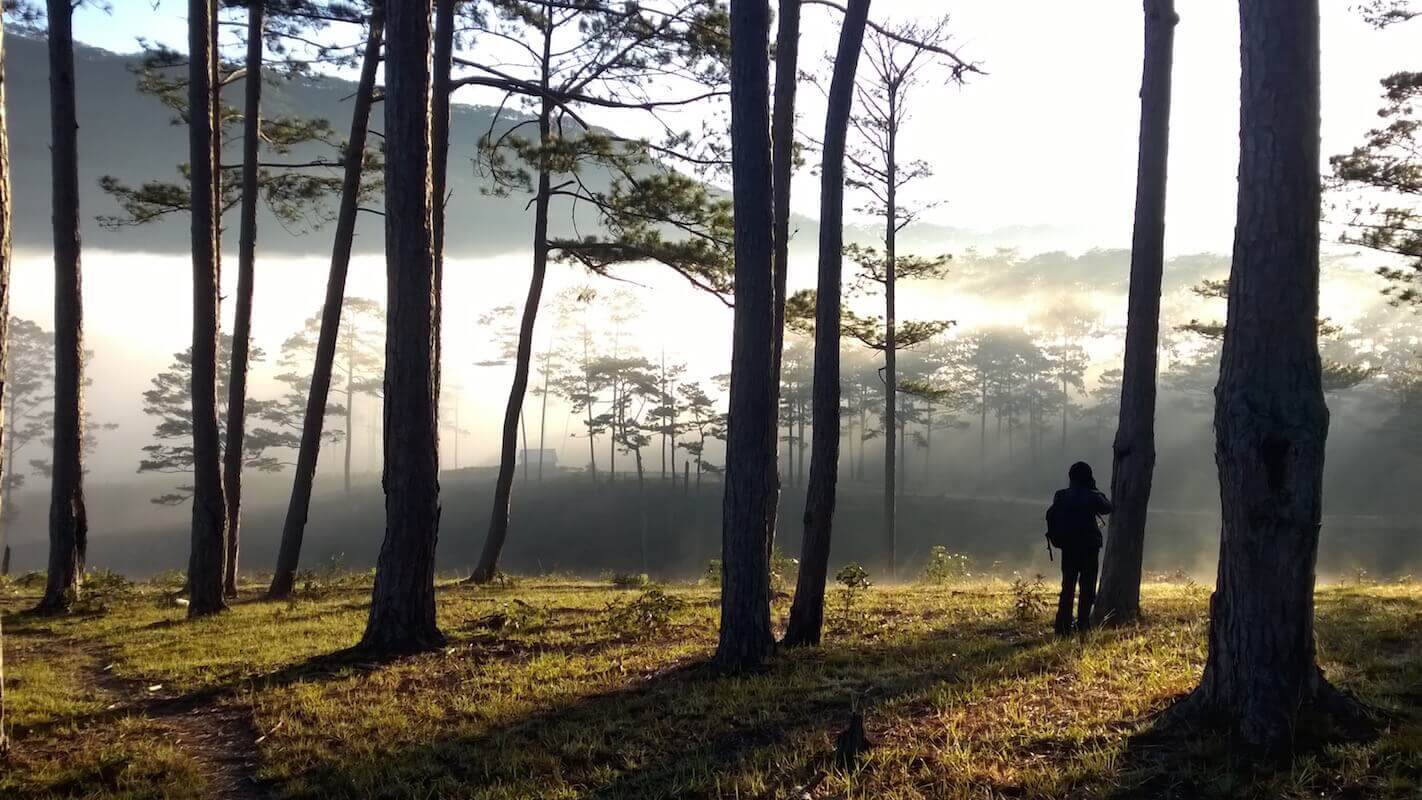Shenandoah University business professor Giles Jackson, Ph.D., is helping coordinate a unique program aimed at increasing the understanding of endangered tropical environments threatened by climate change. The Bidoup Field School launched earlier this year at Bidoup Nui Ba National Park (BDNP), a UNESCO Biosphere Reserve located in the central highlands of Vietnam.
The region serves as a living laboratory in which teams of students, under the direction of four Columbia University professors and their counterparts around the world, explore ecological responses to past and present climate change and develop the means to predict future change.
Students and researchers are seeking answers to questions with far-reaching global implications, such as:
- How will climate change impact seasonal temperature or rainfall patterns, and forest health and integrity?
- What will be the effects of rising competition among species for light, water, or nutrients?
- How will biodiversity be impacted and what will the consequences of biodiversity loss be?
- What will such changes mean for the local indigenous populations who depend upon these ecosystems for their survival?
- How does one build science-based policies to mitigate or adapt to these environmental changes?
Brendan Buckley, Ph.D., co-founder of the Bidoup Field School, began a program of climate research in the region several years ago, with support from the National Science Foundation.
“There is so much that we don’t currently know about these endangered environments and here we had a natural laboratory to study,” said Dr. Buckley. “Bringing in researchers and students, both graduate and undergraduate, to collect and analyze as much data as humanly possible became our driving force. Many are likely to develop into full time researchers who may wish to continue research in the park, thus ensuring the future of this vital research program.”
Dr. Jackson reached out to Buckley last fall while he and his Shenandoah students were conducting research for a nascent science-ecotourism project in the West Indies.
“I’d read about Brendan’s plans for a field school on the Internet and wanted to learn more,” said Jackson. “We hit it off, and he invited me to join the scientists for the inaugural event, which I attended thanks to support from Shenandoah University. He needed someone to manage the business side, so he could focus on the science. Also, he wanted to explore how we might leverage tourism to sustain the science program — generating funds to purchase field and lab equipment, subsidize Vietnamese students, offset operational expenses and save for a dedicated field school facility.”
This summer, Jackson built the field school website and set up a secure payments system.
A tourism component has already been built into the January 2016 field school program. After completing field and laboratory work, students will pay a visit to K’Ho Coffee, a socially responsible coffee growing cooperative composed of dozens of indigenous ‘K’ho’ families living at the foot of Lang Biang Mountain.
This social enterprise was founded by American Josh Guikema and Rolan CoLieng to help preserve the unique K’ho culture and the ecology of the central highlands through responsible practices. Students will also visit Dabla Village, which has revived ancient weaving traditions with the help of the Japanese government.
“Done right, tourism can be a powerful vehicle for fostering international understanding and alleviating poverty,” said Jackson. Future plans include a multi-day trekking trail system to connect BDNP with neighboring national parks, Chu Yang Sin to the north and Phuoc Binh to the south, expanding the field school in both directions.
Jackson, who teaches an elective course called Sustainable Business Strategy at Shenandoah University’s Harry F. Byrd, Jr. School of Business, recently went back to school to acquire new knowledge, contacts and skills to help take Bidoup Field School to the next level. With support from the Algernon Sydney Sullivan Foundation, he’s taking an online course in environmental management of international tourism development at Harvard University.
“Last week, the vice president for sustainability at Six Senses Resorts and Spas came to speak to the class,” Jackson said. “She told us that we lost 52% of the global wildlife population between 1970 and 2010, according to the World Wildlife Fund. Everything I’m hearing is telling me that these are not problems that may or may not happen sometime in the future. They’re happening right now, which is why we need more initiatives like the Bidoup Field School to figure out what’s going on and how we might best plan for the future.”
Jackson is producing a case study about the field school for the Algernon Sydney Sullivan Foundation, so that students of social entrepreneurship may benefit from the lessons learned. Find more details about the Bidoup Field School at www.bidoupfieldschool.org. Deadline to register for the January 2016 field school is Saturday, Oct. 31.




